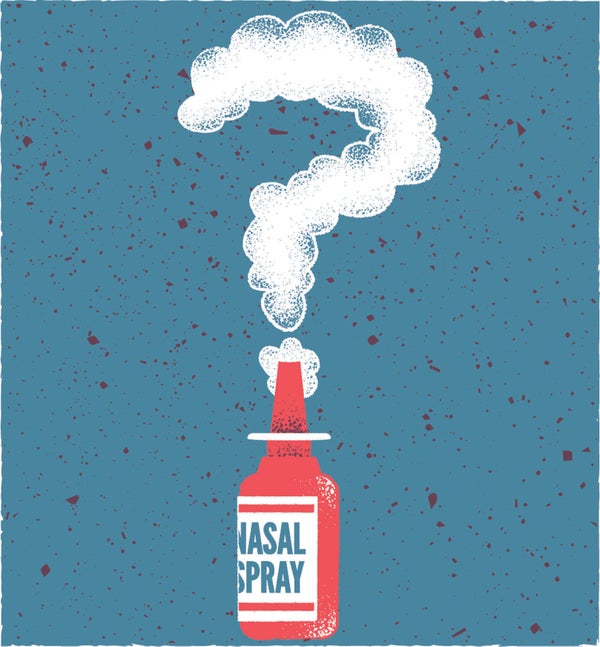On supporting science journalism
If you're enjoying this article, consider supporting our award-winning journalism by subscribing. By purchasing a subscription you are helping to ensure the future of impactful stories about the discoveries and ideas shaping our world today.
Covid is credited with propelling clinical innovation. But for a disease that seems to start in people’s noses, none of the available drugs or vaccines are delivered intranasally. Killing the virus before it travels into our lower airways could prevent serious illness. An intranasal vaccine could do this by stimulating the immune system in the mucus of our noses. And intranasal treatments, such as antibodies or small-molecule antivirals, could stop the virus before it infects enough cells to cause disease. Vaccinated health-care workers, for instance, could take a puff of a virus-killing nasal spray after exposure to protect against breakthrough infection.
So why aren’t intranasal pharmaceuticals here yet? Drugmakers default to injectable vaccines and treatments for a few reasons. Our muscles have lots of blood vessels, so injections in arms are perhaps the fastest way to get immune-stimulating vaccines and therapeutic antibodies into the bloodstream. From there these molecules can work their way to the respiratory system (and other systems), where the COVID virus is doing its dirty work. Similarly, pills get absorbed into our circulation quickly. To make existing drugs or vaccines work intranasally may require reformulation and retesting. But a nasal spray might have benefits that injectables and pills do not: direct delivery to the earliest site of infection.
Several nasal vaccines are now in clinical trials. Intranasals for prevention and treatment are also in development. A scientist at the University of Houston, for example, has shown in animal models of COVID that an intranasal antibody spray seems to reduce viral load; the biotech company he co-founded is working toward clinical trials. Depending on how these methods perform, we may get new tools for living amid this pervasive disease.
